#The Office (U.S.)
Text
there's just... there is no reason to make yet another cop show in this day and age. copaganda is not only bullshit, it is a failure of imagination.
you want to watch brooding characters with dark pasts investigate crimes in an official capacity? just use private detectives (cops have a miserable solve rate anyway). want eccentric geniuses & their sidekicks solving mysteries? i present you with armchair detectives & neighborhood busybodies. oh, you're craving a workplace comedy-drama starring overworked protagonists doing their heartfelt best to resolve community conflicts? social worker office sitcom! bitch this is ACHIEVABLE
#i lied the one reason to make a cop show is you want a mafia show and the cops are currently by far the most powerful u.s. mafia#BUT! i cannot emphasize enough: the police have none of the aesthetics or personality of the actual mafia so why even bother#The Sopranos but in an office setting with buzzing fluorescent lighting? and half your co-workers are weekend neo-nazis? come on#no. just no#from now on i want all tv cops to be villainous side characters#but BORING villainous side characters#i like villains as much as the next queer audience member but i cannot overstate the importance of portraying cops as not just bastards#but BORING bastards#they are so boring. they are boring and hateful and also neither particularly smart nor interesting#i need to emphasize: there is NOTHING to romanticize there#i am so passionate and supportive of anti-romanticizing cops. ANTI-ROMANTICIZE THE POLICE.#the police are BORING and HATEFUL and CRUEL and BASIC AS HELL#and we should be pointing that out publicly every chance we get#the police are BORING BASIC BITCHES and mocking them publically is a patriotic service
7K notes
·
View notes
Text
Who ever thought THIS would happen in my lifetime?
I am stunned, happy and just urge anyone who hasn't yet to see both of these films!
229 notes
·
View notes
Text
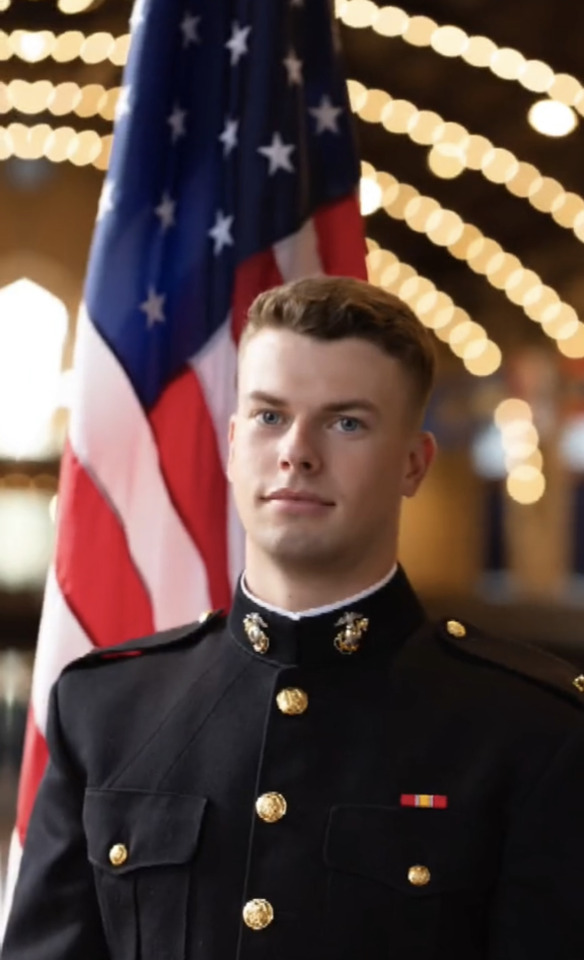
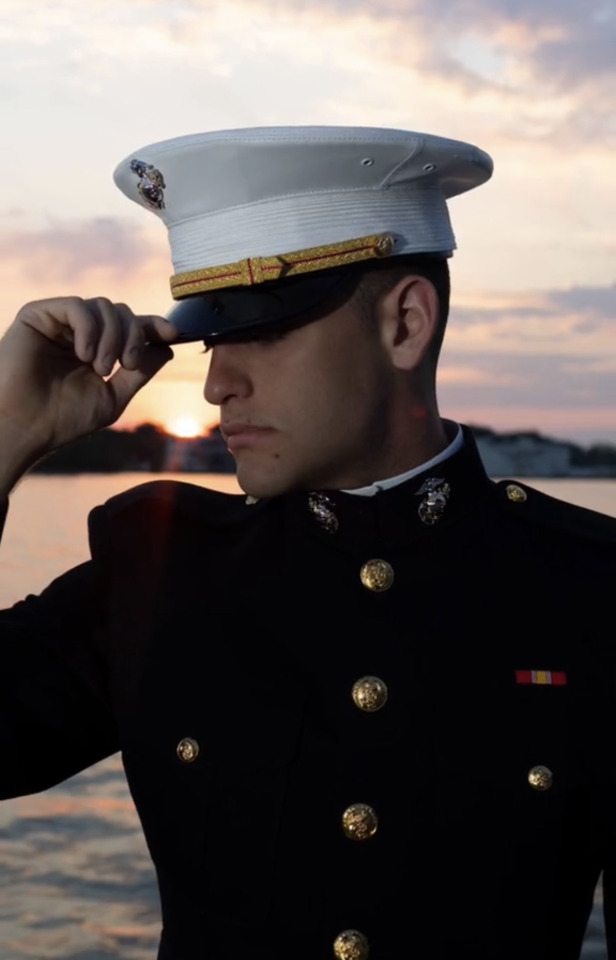


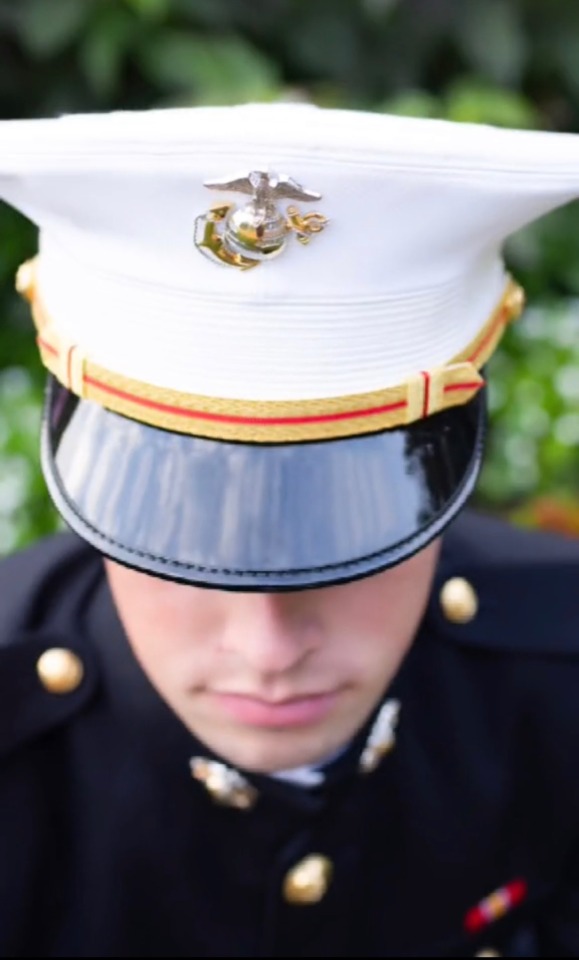
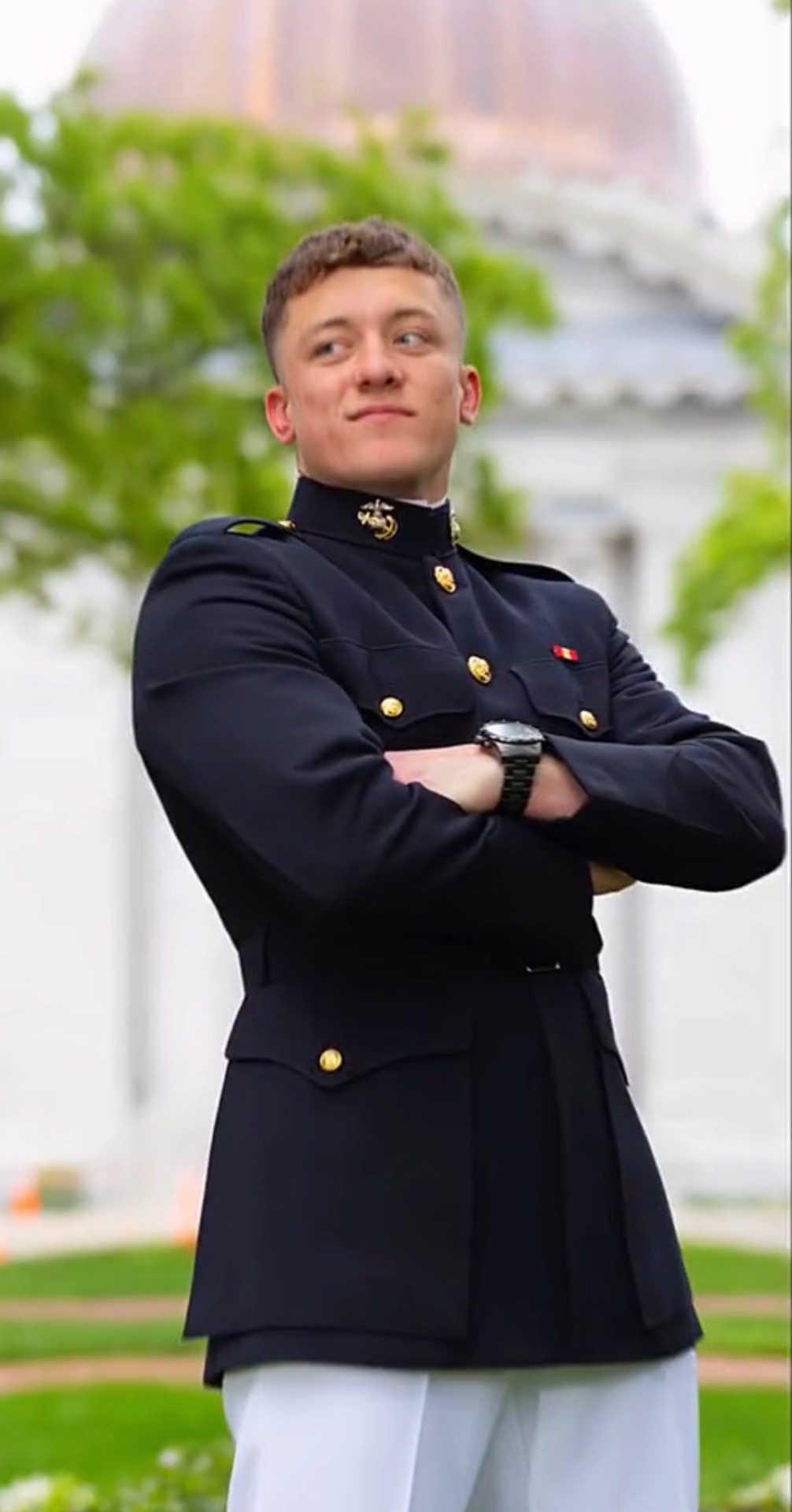

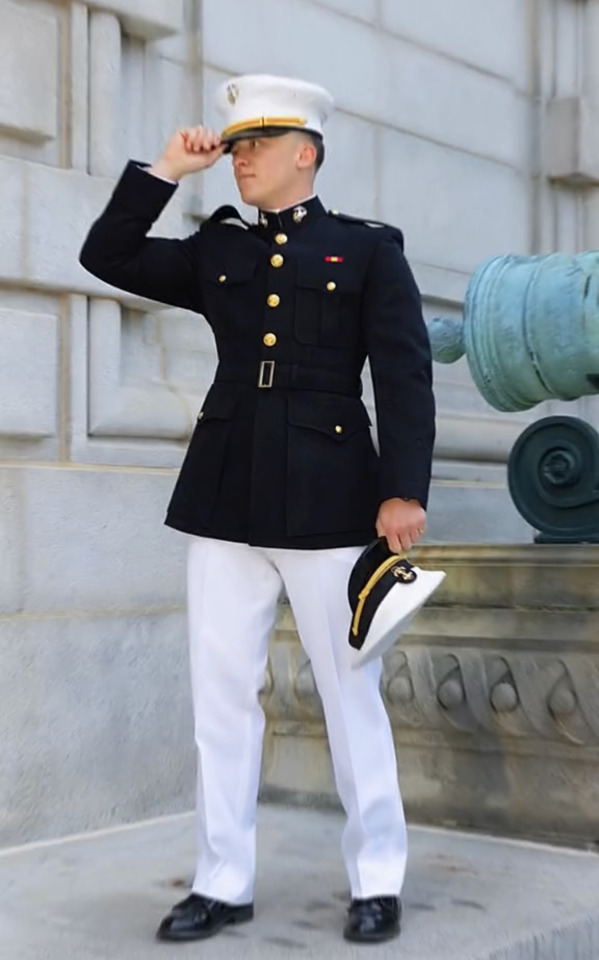


The next round of Navy and Marine Corps Officers graduating to the fleet…
Welcome aboard boys!
#usmc#us naval academy#u.s. navy#us marine corps#military#militär#u.s. military#u.s. marines#navylife#us navy#navy#american military#military officer#dress uniform#military uniform#hothunks#handsome#cute boys#those eyes#oohrah#military stud#stud#cuteness#militaire
328 notes
·
View notes
Text




His eyes are amazing!
Previously posted these, but have enlarged each by 3x and and enhanced each image for clarity.
#shirtless#muscle#jock#military jock#u.s. military#military#police officer#police uniform#amazing eyes#scruff#tattoos#flexing#bicep flex#smirk#baseball cap#ballcap#sunglasses#beer#beertime#beach#outdoors#photo enlargement#photo enhancement
157 notes
·
View notes
Text
Philosopher and presidential Green Party candidate Cornel West currently owes more than half a million dollars between unpaid taxes and unpaid child support, according to tax records.
Records show West owes nearly $466,000 in federal income taxes from 2013 until 2017. This came after he accrued (and later repaid) a debt of nearly $725,000 from 1998-2005, and more than $34,000 in 2008, according to tax records in Mercer County, New Jersey – where he owns a home.
Additionally, West has an outstanding $49,500 child support judgement from 2003, records show.
The debts were first reported by The Daily Beast.
The tax debts have not been paid off as of 30 days ago – the last available data, according to Mercer County records. ABC News reached out to West and his campaign to see if West had plans to pay off the debt or set up a payment plan; they have not returned those requests for comment.
The outstanding child support payment is owed to Aytul Gurtas, his former partner and mother of one of his children. ABC News was unable to reach Gurtas for comment.
While it's not clear how long West didn't pay child support, New Jersey family lawyer Kathleen Stockton said that the amount of money appears substantial. The average U.S. child support obligation is about $5,800 per year, according to census data, making West's nearly $50,000 more than eight times that.
Stockton noted that it is possible West paid Gurtas and didn't register it with the court – though West has given no indication of that.
When the question of his debts was brought up on The Breakfast Club radio morning show last week, West told the radio show host "Charlamagne the God" that they were being used as a "distraction" from his presidential campaign, which has focused on ending poverty, mass incarceration and environmental degradation.
"Any time you shine a flashlight under somebody's clothes, you're gonna find all kind of mess, because that's what it is to be human," West said.
Earlier on the show, West mentioned he was "broke as the Ten Commandments financially, personally, collectively."
West's debts are personal, not related to the campaign, so they may not directly bear on the finances of his candidacy. Still, personal finance issues have been known to interfere with campaigns: Florida Sen. Marco Rubio's sometimes imprudent management of his own finances were scrutinized during his 2016 campaign for president, and then-Wisconsin Gov. Scott Walker's personal debt seemed to undermine his message of fiscal hawkishness.
According to West's financial disclosure filed with the Federal Election Commission in August 2023, he currently makes at least $200,000 annually. That includes his professorship at the Union Theological Seminary, where his annual income falls upward of $100,000; his speaking engagements, where he makes at least another $100,000; and his retirement fund, which earns him somewhere between $5,000 and $15,000 annually. His spouse, a professor, makes at least $50,000 per year.
Kedric Payne, an ethics lawyer with the Campaign Legal Center, said in an email to ABC News that the U.S. Office of Government Ethics advises candidates to disclose debts the size of West's.
"The federal disclosure law requires candidates for president to report liabilities owed over $10,000. Child support is excluded, but OGE advises that overdue taxes are reportable. If West in fact owes taxes, voters have a right to know why this isn't disclosed," Payne wrote.
West's associate, author Christopher Phillips described West as "authentic" and someone who hasn't hesitated to spend his own money to help others.
Phillips, who said he has known West for eight years, said that when he first met West over the phone, the scholar volunteered to lecture and spend time with his students at the University of Pennsylvania, where Phillips was a writing fellow.
"He said he could come down on his own nickel, and he spent the entire day breaking philosophical bread with my students … just because he likes what I do," Phillips said.
The campaign did not respond to ABC News' multiple requests for comment.
#us politics#news#abc news#green party#Cornel West#third party#2023#2024 elections#unpaid taxes#unpaid child support#Aytul Gurtas#Kathleen Stockton#The Breakfast Club#Charlamagne the God#Federal Election Commission#Kedric Payne#Campaign Legal Center#U.S. Office of Government Ethics#financial disclosure#Christopher Phillips
35 notes
·
View notes
Note
So I found out that Martin Van Buren was apparently part of the New York legislature at the same time as being Attorney General of New York. Were the rules about separation of powers different around then, as I know that unlike us Brits you Americans have very strict rules on this?
The U.S. Constitution (via the Incompatibility Clause: Article I, Section 6, Clause 2) only prohibits members of the U.S. Senate or U.S. House from serving in the Executive Branch or the Judicial Branch at the same time (and vice versa), so there's nothing on a federal level that would keep someone from serving in two other offices simultaneously.
However, each state has their own laws and restrictions, and most states don't allow people to serve in two elected positions at the same time. I don't know if any states actually still allow it at all, but there may be some where it's technically possible as long as the office-holder isn't getting paid from both positions and the two positions are not incompatible (causing a clear conflict of interest). It differs from state-to-state, though, so it depends on which state we're talking about -- and the laws have changed throughout history, so what might have been allowed in the past may not be possible today, but I'm pretty sure the vast majority of states, if not all, now prohibit dual-office holding.
In regards to the specific example you mentioned, the requirements in New York were definitely different at the time that Martin Van Buren simultaneously served in the legislature and as state Attorney General. From a quick look at the New York State Constitution that is currently in effect, it appears that a member of the state legislature would have to vacate their seat to accept another position in the state (or federal and city) government, so Van Buren wouldn't be able to do the same thing today in New York.
#History#Politics#Constitution#Constitutional Eligbility#Dual-office holding#Political Positions#Separation of Powers#Incompatibility Clause#Martin Van Buren#U.S. Constitution#Separation of Personnel
17 notes
·
View notes
Photo
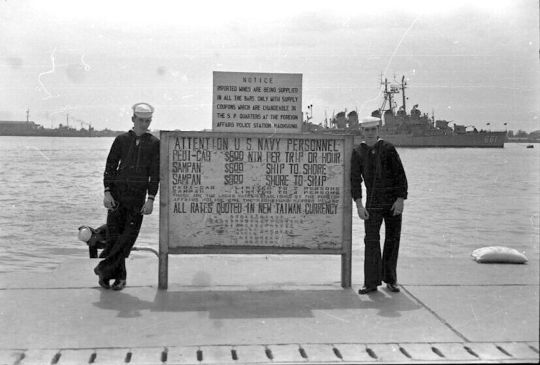
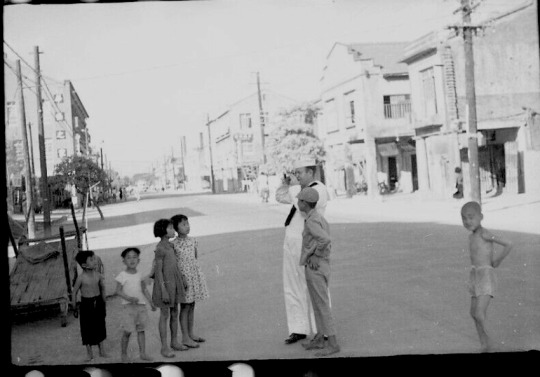


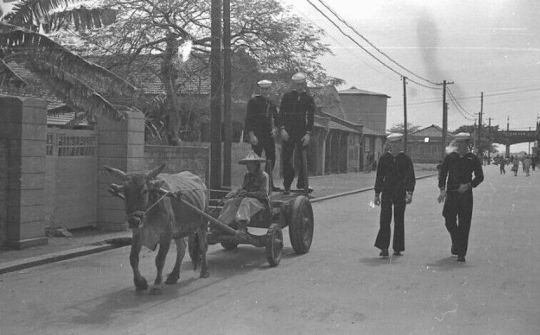
高雄鹽埕,1950s
#台灣#高雄#鹽埕#kaohsiung#taiwan#us army#u.s. army#cold war#1950s#台湾#臺灣#anonymous#牛車#port#港口#post office#camera#Foreign Affairs Police Service#notice#高雄市警察局外事服務站
60 notes
·
View notes
Photo

(via Gym Taps: 1942 | Shorpy)
May 1942. Ames, Iowa. "Tap dancing class in the gymnasium at Iowa State College." Acetate negative by Jack Delano for the U.S. Office of the Coordinator of Information. View full size.
#Tap dancing class#gymnasium#Iowa State College#vintage#women#1942#Jack Delano#U.S. Office of the Coordinator of Information
56 notes
·
View notes
Text
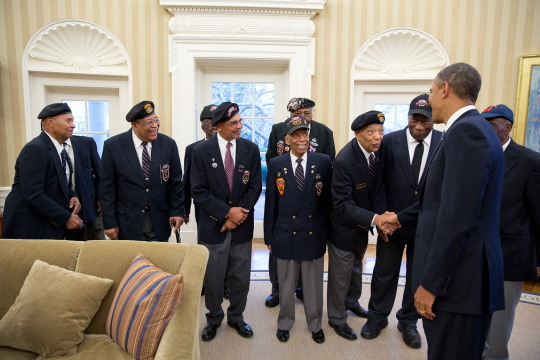
President Barack Obama greets veterans of the 2nd Ranger Infantry Company (Airborne) in the Oval Office, Feb. 27, 2013.
The 2nd Ranger Company was an all-Black unit that served during the Korean War.
Collection BHO-WHPO: Records of the White House Photo Office (Obama Administration)
Series: Presidential Photographs
Image description: In the Oval Office, President Obama shakes hands with one of ten Black veterans. Pres. Obama and the veterans all look delighted to be there. The veterans are all wearing berets or baseball caps identifying them as Airborne Rangers, and dark blazers with Airborne patches and other Army badges and pins.
#archivesgov#February 27#2013#2010s#Barack Obama#military#U.S. Army#Airborne#Airborne Rangers#2nd Ranger Infantry Company (Airborne)#Black history#African American history#Black History Month#White House#Oval Office
76 notes
·
View notes
Text

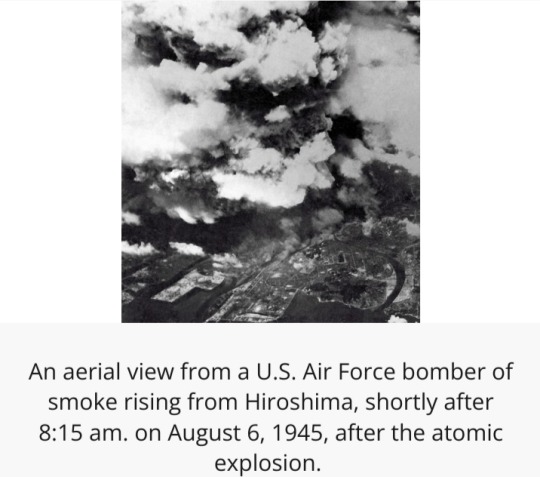
On 6 August 1945, during World War II (1939-45), an American B-29 bomber dropped the world’s first deployed atomic bomb over the Japanese city of Hiroshima.
The explosion immediately killed an estimated 80,000 people; tens of thousands more would later die of radiation exposure.
Three days later, a second B-29 dropped another A-bomb on Nagasaki, killing an estimated 40,000 people.
Japan’s Emperor Hirohito announced his country’s unconditional surrender in World War II in a radio address on August 15, citing the devastating power of “a new and most cruel bomb.”
The Manhattan Project
Even before the outbreak of war in 1939, a group of American scientists — many of them refugees from fascist regimes in Europe — became concerned with nuclear weapons research being conducted in Nazi Germany.
In 1940, the U.S. government began funding its own atomic weapons development program, which came under the joint responsibility of the Office of Scientific Research and Development and the War Department after the U.S. entry into World War II.
The U.S. Army Corps of Engineers was tasked with spearheading the construction of the vast facilities necessary for the top-secret program, codenamed “The Manhattan Project” (for the engineering corps’ Manhattan district).

Over the next several years, the program’s scientists worked on producing the key materials for nuclear fission — uranium-235 and plutonium (Pu-239).
They sent them to Los Alamos, New Mexico, where a team led by J. Robert Oppenheimer worked to turn these materials into a workable atomic bomb.
Early on the morning of 16 July 1945, the Manhattan Project held its first successful test of an atomic device — a plutonium bomb — at the Trinity test site at Alamogordo, New Mexico.
No Surrender for the Japanese
By the time of the Trinity test, the Allied powers had already defeated Germany in Europe.
Japan, however, vowed to fight to the bitter end in the Pacific, despite clear indications (as early as 1944) that they had little chance of winning.
In fact, between mid-April 1945 (when President Harry Truman took office) and mid-July, Japanese forces inflicted Allied casualties totaling nearly half those suffered in three full years of war in the Pacific, proving that Japan had become even more deadly when faced with defeat.
In late July, Japan’s militarist government rejected the Allied demand for surrender put forth in the Potsdam Declaration, which threatened the Japanese with “prompt and utter destruction” if they refused.

General Douglas MacArthur and other top military commanders favored continuing the conventional bombing of Japan already in effect and following up with a massive invasion, codenamed “Operation Downfall.”
They advised Truman that such an invasion would result in U.S. casualties of up to 1 million.
In order to avoid such a high casualty rate, Truman decided – over the moral reservations of Secretary of War Henry Stimson, General Dwight Eisenhower and a number of the Manhattan Project scientists – to use the atomic bomb in the hopes of bringing the war to a quick end.
Proponents of the A-bomb — such as James Byrnes, Truman’s secretary of state — believed that its devastating power would not only end the war but also put the U.S. in a dominant position to determine the course of the postwar world.
'Little Boy' and 'Fat Man' Are Dropped

Hiroshima, a manufacturing center of some 350,000 people located about 500 miles from Tokyo, was selected as the first target.
After arriving at the U.S. base on the Pacific island of Tinian, the more than 9,000-pound uranium-235 bomb was loaded aboard a modified B-29 bomber christened Enola Gay (after the mother of its pilot, Colonel Paul Tibbets).
The plane dropped the bomb — known as “Little Boy” — by parachute at 8:15 in the morning.
It exploded 2,000 feet above Hiroshima in a blast equal to 12-15,000 tons of TNT, destroying five square miles of the city.
Hiroshima’s devastation failed to elicit immediate Japanese surrender, however, and on August 9, Major Charles Sweeney flew another B-29 bomber, Bockscar, from Tinian.
Thick clouds over the primary target, the city of Kokura, drove Sweeney to a secondary target, Nagasaki, where the plutonium bomb “Fat Man” was dropped at 11:02 that morning.
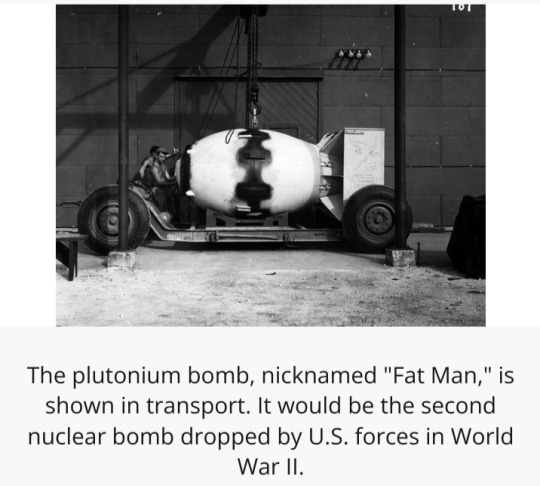
More powerful than the one used at Hiroshima, the bomb weighed nearly 10,000 pounds and was built to produce a 22-kiloton blast.
The topography of Nagasaki, which was nestled in narrow valleys between mountains, reduced the bomb’s effect, limiting the destruction to 2.6 square miles.
Aftermath of the Bombing

At noon on 15 August 1945 (Japanese time), Emperor Hirohito announced his country’s surrender in a radio broadcast.
The news spread quickly.
“Victory in Japan” or “V-J Day” celebrations broke out across the United States and other Allied nations.
The formal surrender agreement was signed on September 2, aboard the U.S. battleship Missouri, anchored in Tokyo Bay.
Because of the extent of the devastation and chaos — including the fact that much of the two cities' infrastructure was wiped out — exact death tolls from the bombing of Hiroshima and Nagasaki remain unknown.
However, it's estimated roughly 70,000 to 135,000 people died in Hiroshima and 60,000 to 80,000 people died in Nagasaki, both from acute exposure to the blasts and from long-term side effects of radiation.


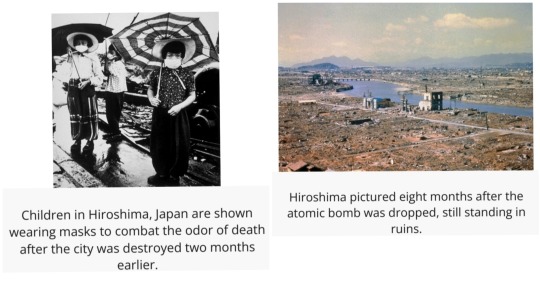
#Bombing of Hiroshima and Nagasaki (1945)#6 August 1945#atomic bomb#Hiroshima#Nagasaki#B-29 bomber#A-bomb#U.S. Army Corps of Engineers#The Manhattan Project#nuclear weapons research#Office of Scientific Research and Development#War Department#World War II#WWII#uranium-235#plutonium (Pu-239)#nuclear fission#plutonium bomb#J. Robert Oppenheimer#Oppenheimer#Trinity test#Potsdam Declaration#General Douglas MacArthur#Operation Downfall#Henry Stimson#General Dwight Eisenhower#Enola Gay#Colonel Paul Tibbets#Bockscar#V-J Day
32 notes
·
View notes
Text
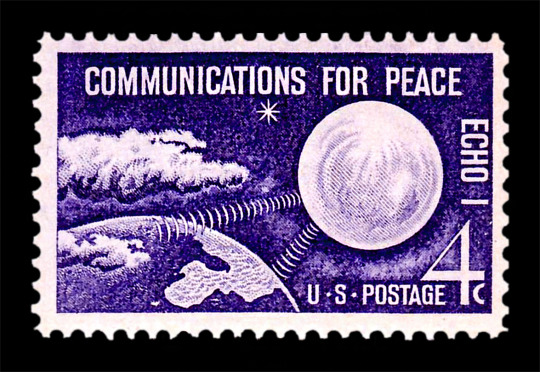
U.S. Postage stamp commemorating the Echo 1 communications satellite - 1960.
#nasa#satellites#communication satellites#echo 1#project echo#stamps#vintage stamps#usps#u.s. postage#stamp collecting#united states post office#united states postal service
6 notes
·
View notes
Text
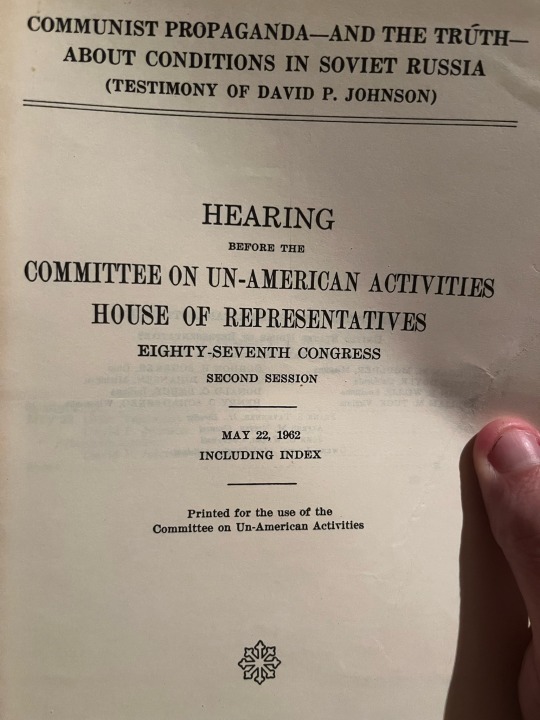
#communist propaganda and the truth about conditions in the Soviet Union#David p. Johnson#committee on in-American activities#house of representatives#U.S. government printing office
13 notes
·
View notes
Text

Newly minted Marine / Navy “O’s”…. Welcome to the fleet!
#usmc#military officer#us marines#u.s. marines#marinecorps#united states marines#united states marine corps#marine corps#us marine corps#united states navy#navy#us navy#u.s. navy#hothunks#military#militär#militaire#american military#us military#u.s. military#military muscle#militarymencollection#military uniform#dress uniform#high and tight#military life#marine#marine life#navylife#navy life
27 notes
·
View notes
Text




#shirtless#muscle#jock#military jock#u.s. military#military#us marines#marine#u.s. marine corps#marine corps#usmc#jarhead#officer#tattoos#nice eyes#nice smile#smirk#baseball cap#ballcap#skateboard#uniform#outdoors
90 notes
·
View notes
Text
The U.S. District Court for the Western District of Texas ruled yesterday that portions of Texas Senate Bill 1, adopted in September 2021, violate the Civil Rights Act of 1964. The court found that parts of S.B. 1 require officials to reject mail-in ballot applications and mail-in ballots based on errors or omissions that are not material in determining whether voters are qualified under Texas law to vote or cast a mail ballot.
“The District Court’s decision affirms what the Justice Department has argued for nearly two years: these provisions of Texas Senate Bill 1 unlawfully restrict the ability of eligible Texas voters to vote by mail and to have that vote counted,” said Attorney General Merrick B. Garland. “The Justice Department will continue to defend against unlawful efforts that undermine the right to vote and restrict participation in our democracy.”
“In requiring rejection of mail ballots and mail ballot applications from eligible voters based on minor paperwork errors or omissions, Texas Senate Bill 1 violates the Civil Rights Act,” said Assistant Attorney General Kristen Clarke of the Justice Department’s Civil Rights Division. “This ruling sends a clear message that states may not impose unlawful and unnecessary requirements that disenfranchise eligible voters seeking to participate in our democracy. The Justice Department will continue to use every available tool to protect all Americans’ right to vote and to ensure that their voices are heard.”
“The right to vote is one of the fundamental rights in our democracy,” said U.S. Attorney Jaime Esparza for the Western District of Texas. “This important ruling protects the rights of eligible Texas voters to cast a vote and have it counted consistent with federal law.”
The court issued a preliminary ruling yesterday in favor of the United States’ motion for summary judgment, which asserts that two provisions of S.B. 1 violate Section 101 of the Civil Rights Act by requiring rejection of mail ballots and mail ballot request forms because of paperwork errors that are not material to establishing a voter’s eligibility to cast a ballot. The first provision requires that early voting clerks “shall reject” mail ballot applications that do not include a Texas driver’s license or ID number that identifies “the same voter identified on the applicant’s application for voter registration.” The second provision provides that a mail ballot “may be accepted only if” the ID numbers on the carrier envelope or signature sheet identifies “the same voter identified on the applicant’s application for voter registration.”
Section 5.07 requires that early voting clerks “shall reject” mail ballot applications that do not include a Department of Public Safety (DPS) number or the last four digits of a Social Security Number (SSN) that identifies “the same voter identified on the applicant’s application for voter registration.” Section 5.13 provides that a mail ballot “may be accepted only if” the DPS number or last four digits of an SSN on the carrier envelope or signature sheet identifies “the same voter identified on the applicant’s application for voter registration.”
The United States presented evidence to the court that S.B. 1 has resulted in Texas election officials rejecting tens of thousands of mail ballot applications and mail ballots cast in elections since the bill was enacted in 2021. The Department asserts that these rejections violate federal law, denying Texas voters the statutory right to vote protected by Section 101.
Yesterday’s preliminary ruling from the court grants the Justice Department’s motion for summary judgment, which the Department filed in May 2023, in its entirety. The decision addresses the Justice Department’s sole pending claim in La Unión del Pueblo Entero v. Abbott, No. 5:21-cv-844 (WDTX), a case in which the United States and several private parties are challenging various aspects of S.B. 1. The court noted that the ruling will be followed in the coming weeks by a final written opinion and order. A group of private plaintiffs will be going to trial on the remaining claims in the case, which have not yet been resolved. That trial is scheduled to begin on Sept. 11.
Complaints about discriminatory practices may be reported to the Civil Rights Division through its internet reporting portal at www.civilrights.justice.gov or by calling (800) 253-3931.
Additional information about the Civil Rights Division’s work to uphold and protect the voting rights of all Americans is available on the Justice Department’s website at www.justice.gov/crt/voting-section.
#us politics#news#department of justice#office of public affairs#2023#texas#biden administration#U.S. District Court for the Western District of Texas#Texas Senate Bill 1#Civil Rights Act of 1964#merrick garland#Kristen Clarke#Civil Rights Division#Jaime Esparza#vote by mail#mail in ballots#La Unión del Pueblo Entero v. Abbott
29 notes
·
View notes
Text
me on the rare occasion that svetlana uses an article: you're doing amazing sweetie
#i was talking to my office manager once about the differences between english and russian and she was telling me that she still#gets confused about which articles to use#and that at one point the managing partner told her that whichever one she thought it was to go with another bc it was probably wrong lmfao#mind you she's been living in the u.s. for a very long time#shameless#svetlana yevgenivna#shameless text
8 notes
·
View notes